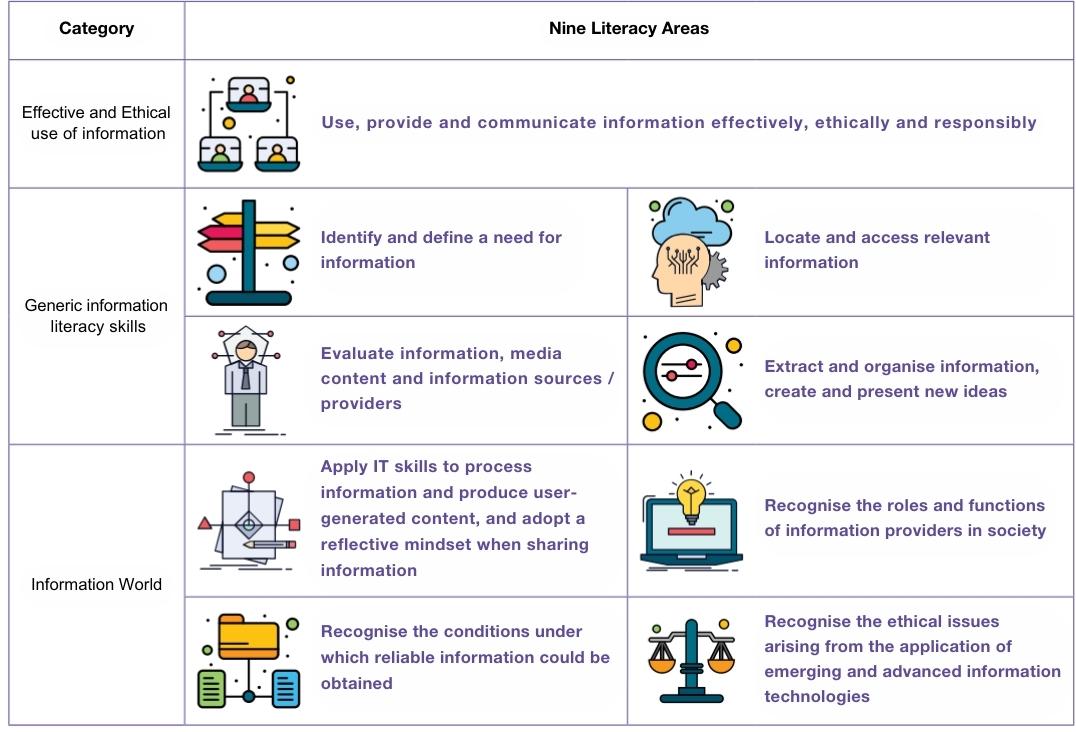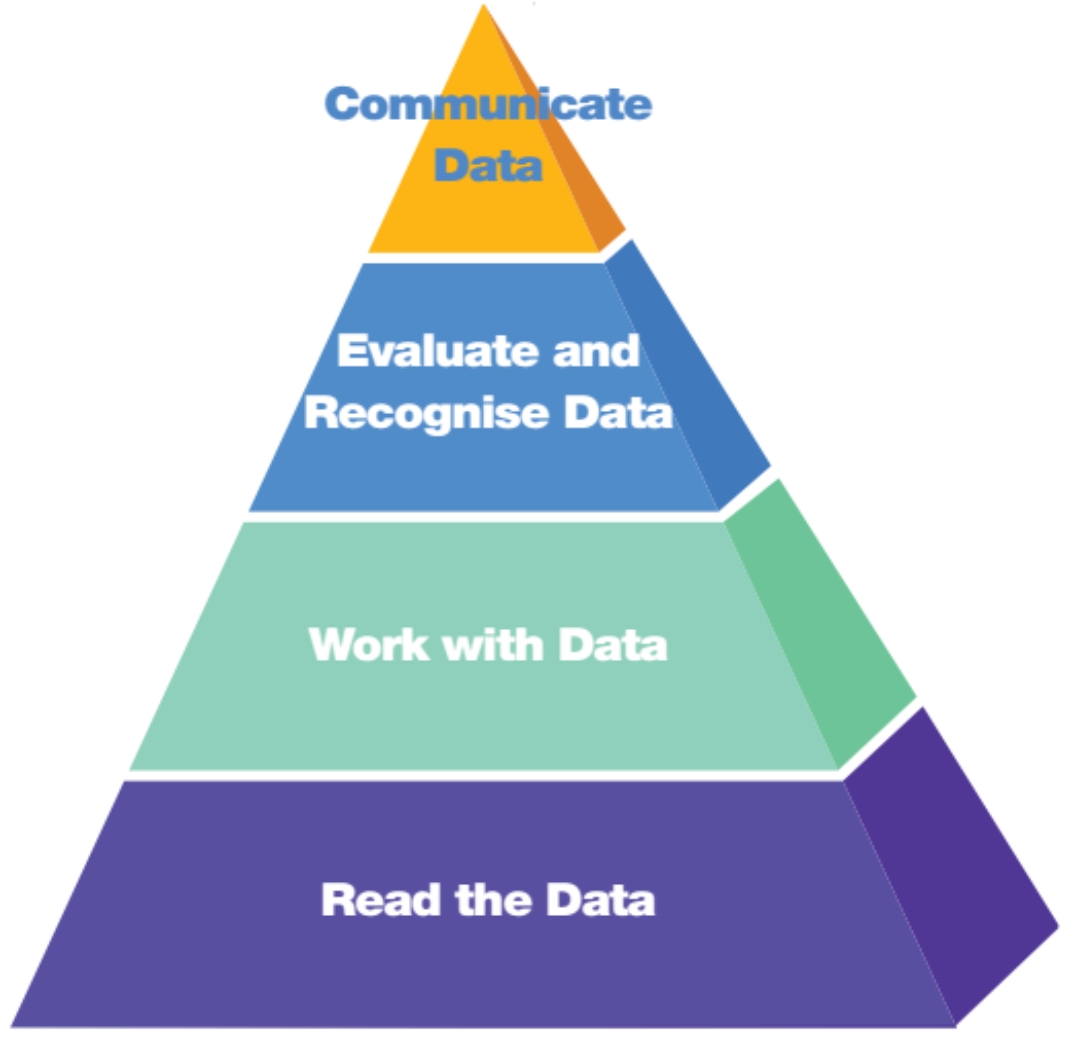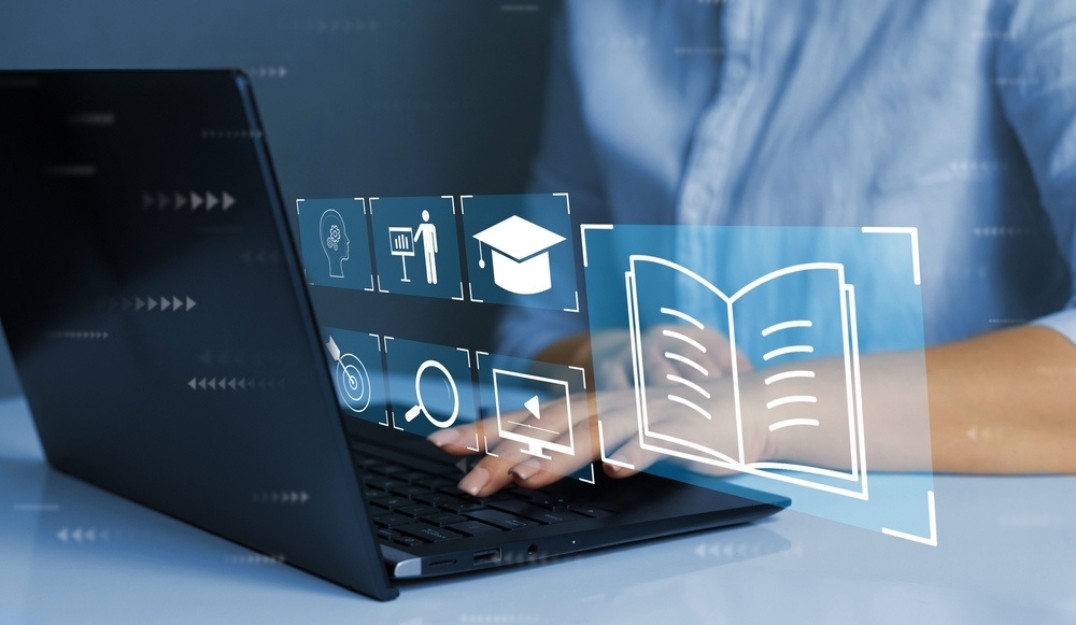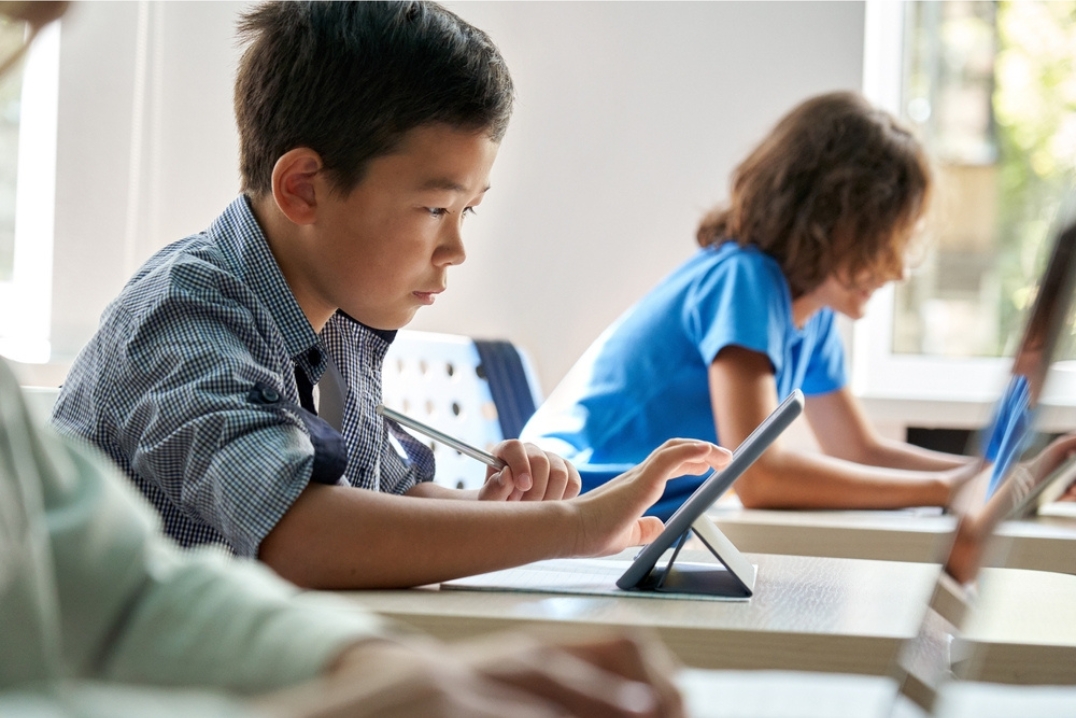Essential Literacy Skills to Our Learners in the Face of Challenges in an Ever-changing World
The rapid advancement of technology enables us to access to information more efficiently. The evolving technological world, however, brings along a world far complex than ever: students are facing massive amount of information, potential fake news, misinformation, cyber security issues, etc. Therefore, there are practical needs to develop literacies other than reading literacy and numeracy amongst our learners, for example information literacy, data literacy, digital literacy and media literacy, and teach them in school curricula to ensure our learners are well-equipped for the ever-changing world.
Do Not Lose Sight of the Big Picture
Although technological advancements have caused changing needs amongst our learners, we must not forget the big picture that
learning using digital platforms accessing to information online is gaining immense popularity but that is also only a subset of all channels to information that are available to them. In 2022, the Hong Kong Education Bureau released the updated draft version of the “Information Literacy for Hong Kong Students” Learning Framework which covers nine information literacy areas grouped under three categories:


Targets for different key-stages are set for the nine information literacy areas with an adoption of a whole-school approach, possibly integrated with values education and national security education where applicable, encouraged.
Gaining increasing attention and importance as well these days is data literacy which involves the ability
- to read data through reading charts and graphs properly,
- to work with data which entails the ability to understand,interpret and analyse them,
- to evaluate data in context and in terms of validity, reliability and authenticity and recognise whether data have been misrepresented or used in inappropriate ways, and
- to communicate data and the insights derived to inform decisions made
When we look back at the COVID pandemic when situations changed vastly within short periods of time, we understand better the importance of efficient decision-making and crisis management which could only be made possible with good data literacy amongst leaders. Governments, corporates, medical institutions and practically organisations of all scale had to best respond to the then crisis with decisions and actions informed by the data available.
Essential Literacies in the Digital Age
Digital literacy, as defined in the United Nations Educational, Scientific and Cultural Organization (UNESCO) in its publication Media and information literacy curriculum for teachers, involves a multitude of abilities:
- the ability to use digital technology, communication tools or networks to locate, evaluate, use and create information;
- the ability to understand and use information in multiple formats from a wide range of sources when presented via computers;
- a person’s ability to perform tasks effectively in a digital environment;
- the ability to read and interpret media, reproduce data and images through digital manipulation; and
- the ability to evaluate and apply new knowledge gained from digital environments
These are all the key abilities to be unleashed by students under different digital contexts.


Artificial Intelligence (AI) technology advances at a tremendous pace. Together with the rapid development of generative AI technologies, the complexity and dimensions to unleash one’s ability in the highly digitalised context soar. Experts have inquired on the development of AI Technology and thought-provoking discussions have also sparked. Among all experts, Geoffrey Hinton, also known as the Godfather of AI put forward several potential threats concerning AI Technology:
- Sprouting of fake news that are hardly verified;
- Polarised discussions online are more noticeable;
- People lose their jobs, or only wealthy people are benefited against the change; and
- Stereotype, discrimination and manipulation become more severe
In this light, how to utilise and apply AI in the digital era has become more crucial in promoting the productivity with AI. Policymakers, educators, experts, professionals and stakeholders all need to seek for concrete solutions through close communication and proactive cooperation.
In addition to digital literacy, promoting media literacy in students is an indispensable part of education as well. When students are media literate, they will be cautious of fake news or misinformation. As contents created by generative AI technologies might be intrinsically biased, students with strong media literacy will be able to avoid and differentiate the biased media or manipulated news. Additionally, the grey area regarding privacy and intellectual property rights are to be further clarified.
Supporting Our Future Generations to Make Good Decisions
The content, be it digital or not, that our younger generations are exposed to will affect their perception, values and judgements. Hence, it is of paramount importance that they have the ability to still make good decisions and act properly upon information, media and data which may sometimes not be presented in a bias-free nor authentic manner. In the times ahead, our children will need much stronger information, data, digital and media literacy in order to exercise critical judgements with openness and use information, data and media ethically and constructively in the future ever-changing world.
